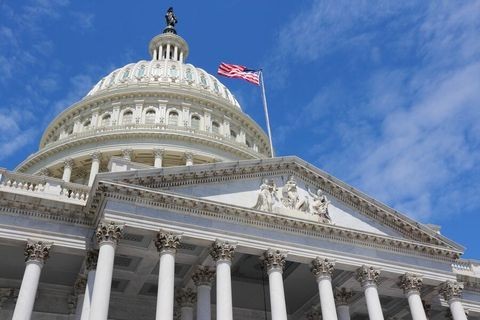HHS Suggests It Will Provide Less Notice and Opportunity for Comment on Grant and Contract Rules
Client Alert | 3 min read | 03.03.25
On February 28, the Department of Health and Human Services (HHS) announced that it was rescinding the Richardson Waiver, a policy in place since 1971 which said HHS would provide notice of proposed rulemaking in certain cases where it was not otherwise required to do so by law. This announcement signals a policy shift for the agency and suggests that where permitted by law, HHS will generally now issue rules relating to “agency management or personnel or to public property, loans, grants, benefits, or contracts” without providing notice and comment to stakeholders, and may otherwise find good cause to forego notice and comment procedures.
Background
Under the Administrative Procedure Act (APA), federal agencies are required to provide notice and opportunity for comment on proposed rules, subject to certain exemptions, including for matters “relating to agency management or personnel, or to public property, loans, grants, benefits, or contracts,” and when the agency finds “good cause” that notice and public procedures are “impracticable, unnecessary, or contrary to public interest.”
In 1971, Elliot Richardson, then the Secretary of Health, Education, and Welfare waived some applicability of these exemptions, issuing a statement of policy stating that the Department and its agencies would follow APA notice and comment procedures on matters relating to public property, loans, grants, benefits, or contracts. Further, the statement of policy said that the good cause exemption in the APA “should be used sparingly.” The policy has remained in place since it was first issued.
Under the announcement of February 28, Secretary of HHS Robert F. Kennedy, Jr. said the Richardson Waiver is rescinded “effective immediately,” and matters relating to public property, loans, grants, benefits, or contracts are exempt from notice and comment procedures. Further, claiming that the direction to use the good cause exemption sparingly was “contrary to the clear text of the APA,” and “impose[s] costs on the Department and the public,” Secretary Kennedy said that the good cause exemption “should be used in appropriate circumstances.” The announcement does not elaborate on what the Department determines would be an “appropriate circumstance.” The statement also notes individual agencies and offices within HHS would have discretion to provide notice and comment procedures, but would not be required to do so except where required by law and the Department would follow the APA when required by the statutory text of the law.
Context and Analysis
Secretary Kennedy’s policy announcement makes clear that the agency will provide notice and opportunity for comment less frequently than stakeholders may have become accustomed to under the policy in place for the past 54 years. This will inevitably allow the agency to issue new rules and policies concerning grants and contracts more quickly, with little to no stakeholder input and transparency.
The policy announcement comes after the Trump Administration previously announced a freeze of all federal grants. Despite court orders to resume grantmaking, public reports indicate that grants at the National Institutes of Health (NIH) were delayed after HHS has prohibited the agency from providing public notice of grant review meetings in the Federal Register, a necessary step for awarding grants.
Although this new announcement indicates that the agency will follow the strictures of the APA, in practical terms, the ramifications of this announcement could be significant. Regarding the delay of NIH grants noted above, for example, a move toward issuance of rulemaking that would further restrict or reduce new NIH grantmaking without an opportunity for notice and a comment period will likely hinder the ability of affected stakeholders to become aware of the measures in a timely manner and may limit opportunity for input in the policymaking process.
Crowell attorneys are monitoring ongoing policy developments at HHS, including changes to federal grantmaking. They are available to assist clients in developing appropriate legal and government affairs strategies to address concerns and take advantage of opportunities.
Contacts
Insights
Client Alert | 3 min read | 09.15.25
On August 19, 2025, the U.S. Senate Committee on Finance (“Senate Finance Committee”) sent Paul Atkins, Chairman, U.S. Securities and Exchange Commission (“SEC”) a letter calling on the SEC to investigate White River Energy Corp (“White River”). In the letter, the Senate Finance Committee confirmed a criminal investigation into White River related to the sale of so-called “tribal tax credits” that according to both Congress and the IRS, do not exist. The letter further states that White River allegedly earned millions of dollars selling these credits and has not been forthcoming with investors regarding the existence of the criminal investigation. According to the Senate Finance Committee, White River has failed to file financial disclosure documents with the SEC since March 15, 2024, missing six consecutive reporting periods. The letter instructs White River to disclose the existence of the DOJ criminal tax investigation, and calls on the SEC to take action if White River fails to do so.
Client Alert | 4 min read | 09.12.25
SBA’s OHA Further Defines Extraordinary Action in SDVOSB Appeal
Client Alert | 6 min read | 09.11.25
U.S. Department of Commerce Partially Relaxes Export Controls on Syria
Client Alert | 9 min read | 09.11.25




